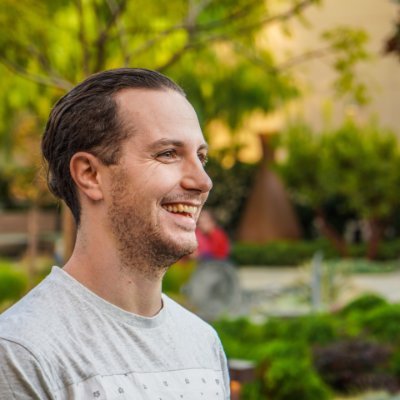AT A GLANCE
9:00 am Venue Doors Open
10:00 am First talk
12:50 pm Lunch
4:00 pm Talks end
5:00 pm Offsite Afterparty
9:00am
Venue Doors open (with breakfast!)
Mingle with other attendees & chat with the sponsors over breakfast & coffee! Quiche, frittatas, & fresh fruit will be served.
10:00am - 10:05am
Welcome & introduction
10:05am - 10:30am
Next-Gen Server JavaScript: Web Standards

Wes Bos
WesBos.com & Syntax.fmWes is a prolific educator, conference speaker, workshop instructor, and co-host of the popular Syntax.fm podcast. He loves creating educational courses on web development. He lives and works in Hamilton, Canada.
What the heck is the Edge? Why did the creator of Node.js make Deno? Heard of Bun? Why can't you use some Node.js APIs in Cloudflare workers? There are more serverside JavaScript runtimes than browser engines! This talk will dive into each of them, and how we can use them to render, stream, intercept and distribute our applications. More importantly, we review web standards and joint efforts that will help us write applications that can deployed multiple platforms. Ideally, you'll come out of this talk excited about new possibilities and not muttering something about IE6 all over again.
10:30am - 10:52am
Unlocking the Mystery of React's Re-Rendering

Ankita Kulkarni
kulkarniankita.comAnkita is an Educator and teaches courses online or sells digital products, such as her Next.js course or her course program on transforming devs into engineering leads. She has taught over 10,000 students online. Ankita has architected and scaled many web and mobile apps for clients using React, GraphQL, React Native and Next.js. She also shares weekly Leadership and Frontend Snacks in her Newsletter at http://bit.ly/42eCi7k.
Your users will not care what tech you used but how fast your app loads. Have you used a hot new stack that everyone loves but still don’t know how to make it performant? Well, it’s because we think about performance as a after-thought after it becomes a bottleneck and when our infra gets costly, ouch! But there is a way to solve this, introducing Core React. We won’t be introducing new tools but going back to how we need to tell React what the DOM should look like. In this talk, we will finally understand why useCallback and useMemo are used, why Lighthouse doesn’t represent performance, how we can minimize component re-render, why it re-renders? and lastly how to profile it with React devtools.
10:52am - 11:07am
The time to go full stack is now

Andre Landgraf
LinkedInAndre is a developer from Germany who is passionate about all things web. He previously worked on voice apps at Mercedes-Benz R&D before joining LinkedIn. In his free time, he tutors aspiring developers in weekly meetups and writes about full-stack development.
Do you currently feel stuck working on a React SPA? Is the performance declining? Then it's time to sit down with the decision-makers at your company and convince them to unlock the full potential of the web platform. It is 2023, and the JavaScript ecosystem has never been stronger. In this talk, I want to make 7 points to convince your boss to go full stack. Only with access to the full stack of the web platform will you be able to tackle the performance requirements of tomorrow. You might have already fallen in love with the idea of owning the backend of the web platform, but you will need a business case with solid business incentives to make your boss pay attention. Let’s build one together!
11:07am - 11:47am
BREAK
Discuss the morning's topics with your fellow attendees, speakers, and visit the sponsor booths!
11:47am - 12:09pm
The long-tail of type safety

Simon Sturmer
HuddlefireSimon is a YC Founder, software engineer, speaker and educator. He's been a frontend engineer at Facebook, worked on product infrastructure at YouTube and is an instructor for Pluralsight Enterprise Learning.
So you've added TypeScript to your codebase, tweaked your tsconfig file and you're flying high with the confidence of no more runtime exceptions and the joy of being able to confidently refactor your code, right? I've been there, it's a great feeling. But as you soon discover, adding TS to your code is only the first step of true end-to-end type safety. In fact, it's likely the easiest step. What about API calls, databases, parsed JSON, query string parameters, request and response bodies, session storage and all those third party libraries and SDKs? These are the I/O boundaries of your application and they can destroy your otherwise flawless type safety. In this talk I'll walk you through the long tail of type safety, approaches to implementing type-safety in the overlooked areas of your stack, and tools to help you do so. You'll come away from this talk well equipped to make your codebase more robust and resilient to runtime exceptions. And best of all you'll get that sweet TypeScript confidence back again!
12:09 - 12:24
Concurrent React Made Easy

Henrique Inonhe
Codeminer42Henrqiue Inonhe is a software developer at Codeminer42. He currently works mostly with Javascript and is a static type maniac.
UI’s are composed of fast parts, and slow parts in terms of how responsive they are to user interaction. React's concurrent renderer decouples the fast parts from the slow parts by allowing us to render the slow parts in the background without blocking the fast parts, so that each part can respond to user interaction at its own pace. In this talk, we'll explore Concurrent React, understand what problems it solves, how it works and how to leverage it through the use of concurrent features.
12:25 - 12:55
How Not to Build a Video Game

Christoph Nakazawa
Nakazawa Tech KKChristoph is an experienced engineering manager, frontend lead and aspiring game developer. He has played a key role in the development of tools such as Jest, React Native, Metro, and Yarn while working at companies like Facebook and Stripe. Currently Christoph is exploring game development and optimizing his workflows and is excited to share more in 2023.
Do easy solutions come at the expense of high performance? In this talk, we'll explore this question as I build a video game from the ground up with JavaScript & React. Along this journey, you'll gain valuable insights into rapid prototyping, test infrastructure, and a range of CSS tricks that can be applied to both game development and your day-to-day work. And perhaps it may even rekindle a love for creating something meaningful & fulfilling, as it did for me!
1:00 - 3:00pm
LUNCH
Enjoy an extended lunch to discuss the morning's topics and connect with your fellow attendees! Take your prepaid credit card out to one of the many restaurants within walking distance and keep the productive discussion going! Find the custom map in the Slack #announcements channel to see all the recommended restaurants (and beautiful walks) within walking distance!
2:40 - 3:00pm
Lunch & Learn: Improving Deploy Previews with the new Xata workflow
Together we will add a new feature to our Next.JS application. Using Xata, we will add likes to our Posts, submit a PR, view our changes in the Deploy Preview and feel the power of git-like data branches that safely move your production data into a new preview branch!
3:00 - 3:30pm
Fireside: Modern CSS

Nicole Sullivan
GoogleNicoe is a software engineer & Product Manager for Chrome at Google
There have been a lot of advancements in CSS over the past few years that can make our web apps more capable, interesting, and performant. Not to mention the improved developer experience! So let's talk about that! And who better to chat with than Nicole Sullivan -- CSS legend and PM for Chrome?
3:30 - 3:55pm
Making state management intelligent

David Khourshid
StatelyDavid is a software engineer who loves playing piano and is passionate about animations, state machines, cutting-edge user interfaces, and open-source. Previously at Microsoft, he is now the founder of Stately, a startup focused on making even the most complex application logic visual and accessible to developers and non-developers alike.
Managing state is complicated. Humans are even more complicated. As developers, it's our job to deliver seamless and intuitive user experiences, but the sheer complexity of human behavior and the real world can make this a daunting task. In this talk, we'll explore a radical new approach to app development where language models (LLMs) and reinforcement learning (RL) can be used to handle app logic in a more intelligent and human-centric way. We're bringing artificial intelligence to state management in ways that go much, much further than calling the ChatGPT API. You will learn how you can leverage AI in your existing code to create the best UX possible, and peer into the future of AI and the path to AGI.
4:00 - 4:45pm
Fireside: The future of frontend development in the age of AI & AGI

Swyx and Sean Grove
Netlify via OneGraph and Smol AISean Grove is a seasoned tech leader and software engineer who's passionate about innovation and making complex problems simple. With a strong background in programming languages like Rust, Clojure, and OCaml, Sean is uniquely positioned to bridge cutting-edge technology with real-world solutions. He has even founded two Y-Combinator startups and sold OneGraph to Netlify in 2021, where he now serves as Principal Architect. Recently, Sean has ventured into the world of machine learning, working on projects like Journaliza, Prator, and Prof Dumbot. These projects aim to help developers and users leverage AI to enhance productivity and communication, and he's firmly in the camp that this is only the beginning of how ML will impact daily life and developer tooling. His passion for exploring new frontiers in this exciting and rapidly evolving field is contagious, and he's always eager to push the limits of what's possible with technology. Swyx is the founder & CEO of Smol AI. Swyx has worked on React and serverless JavaScript at Two Sigma, Netlify AWS, and Temporal. He has started and run communities for hundreds of thousands of developers, like Svelte Society, /r/reactjs, and the React TypeScript Cheatsheet. His nontechnical writing was recently published in the Coding Career Handbook for Junior to Senior Engineers.
Artificial intelligence has made heretofore unfathomable gains in capability, utility, and popularity since the release of ChatGPT in November 2022. The impressive capabilities are usurped only by the speed at which they are evolving and improving. So what does this mean for frontend development -- or for engineering itself? These are fascinating questions to explore -- with a potential for a paradigmatic shift the likes of which we haven't seen since the Industrial Revolution or the dawn of the World Wide Web. Join us as we discuss these ideas and more with Sean Grove -- who will help us to contextualize these changes with insight and even some demonstrations of the technologies & concepts discussed.
4:45pm - 5:00pm
To the OpenSauced Afterparty!
10-minute walk to the OpenSauced afterparty at Hotel Kabuki!
5:00pm - 7:00pm
The OpenSauced Afterparty
Join us at Hotel Kabuki's bar, lounge, and zen garden for the official afterparty! Thanks to OpenSauced for sponsonring -- OpenSauced provides enterprise insights into your open-source contributions.
8:00pm - 10:00pm
Latent Space LIVE Podcast at the Boom Boom Room!
Just two blocks from Hotel Kabuki, join us to enjoy live music, cocktails and mocktails, and a live recording of the Latent Space Podcast with Swyx & Alessio Fanelli! Free admission for badged attendees. The Latent Space Podcast is a high-signal podcast discussing AI/ML, Software 3.0, and other notes from the Latent Space. Learn more at latent.space/podcast
Tickets.
Special early bird discount: use code MARCH for 30% off! This code ends April 1.
Recently laid off? Email info@reactathon.com for steeper discounts!
Don't wait
Get yours before they're gone.
Buy Tickets...before they're all gone!